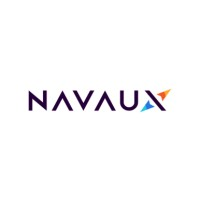Early cancer detection startup Navaux gets new funding
By IANS | Updated: July 25, 2024 12:30 IST2024-07-25T12:29:11+5:302024-07-25T12:30:18+5:30
New Delhi, July 25 US-based cancer detection startup Navaux on Thursday announced receiving fresh funding, which it said, ...

Early cancer detection startup Navaux gets new funding
New Delhi, July 25 US-based cancer detection startup Navaux on Thursday announced receiving fresh funding, which it said, will play a "pivotal role" in entering the Indian market.
The life science company secured an undisclosed investment from angel investor Karna D. Shinde.
This comes as India is rapidly emerging as a hub for health-tech innovations, a trend highlighted by Finance Minister Nirmala Sitharaman's recent announcement in the Union Budget 2024-25, which offers relief to cancer patients by exempting three crucial cancer treatment medicines from customs duty.
"This investment will play a pivotal role in helping Navaux, a company specialising in early cancer detection technology, establish connections within the Indian healthcare industry as they prepare to introduce their cutting-edge solutions to the Indian market," the company said in a statement.
Navaux's innovative ACTIVH test, developed based on preclinical studies, can predict the onset of cancer up to 3-4 years in advance, which can help individuals make lifestyle changes, like quitting smoking and alcohol, to potentially prevent the development of cancer.
Further, ACTIVH is a critical tool for patients undergoing cancer treatments, providing real-time insights into the efficacy of chemotherapy, radiation, or other therapies by monitoring Hepsin levels in the blood. A decrease in Hepsin levels indicates effective treatment, while an increase signals the need for alternative therapies.
"Early cancer detection significantly improves survival rates. Navaux's ACTIVH is a boon for patients and their families. Determining aggressive cancer development before symptoms arise will lead to longer survival and a better quality of life for patients," Shinde said.
"Moreover, biomarkers like Hepsin offer the potential for future therapies that are more effective and produce fewer side effects," he added.
Disclaimer: This post has been auto-published from an agency feed without any modifications to the text and has not been reviewed by an editor
Open in app